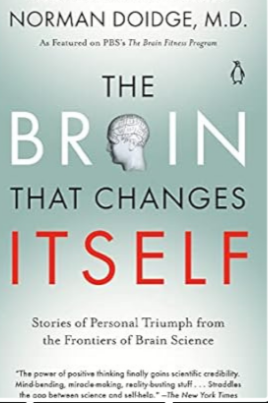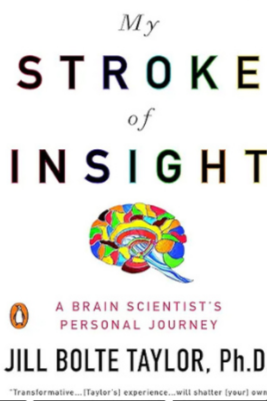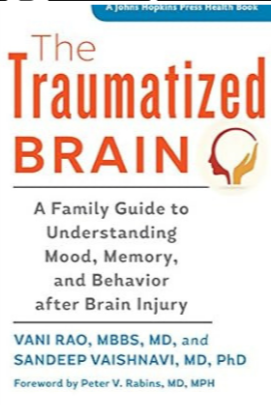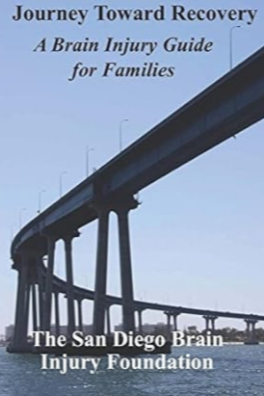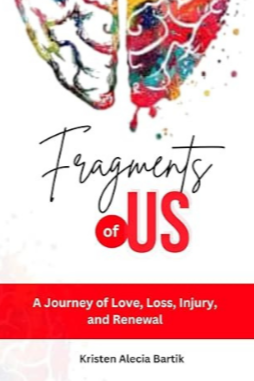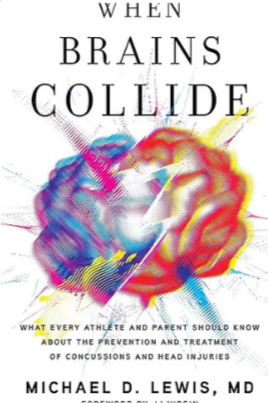
Therapy for Brain Injury Survivors & Families
Finding Light after the Storm
Every brain injury is unique.
Most brain injury survivors benefit from having a dedicated team of professionals which may include neurology, neuropsychology, physical therapy, occupational therapy, speech therapy, psychiatry, vision therapy, endocrinology, and mental health counseling. Supportive family, friends, and peers can also be important members of your team.
As a mental health professional, I offer counseling that focuses on the emotions, thoughts, relationship challenges, and intrapersonal experiences that often accompany a brain injury.
The Survivor
One of the most hopeful aspects of recovery is that the human brain can adapt and change after injury. And this process may begin very soon after injury.
During therapy sessions with me, you will have the opportunity to process your thoughts and feelings in a safe, supportive environment. New skills, sources of strength, and interests may come in to clearer focus. It is also a good place to take a deeper look at all you’ve learned and experienced. Counseling can support resilience and growth as you face new challenges and dream new dreams.
Your recovery and healing are individual to you. Every person and every brain injury is unique.
A severe brain injury is a traumatic event. However, mild or moderate injuries can also come with some big challenges. Feelings of sadness, anxiety, or frustration are common. You may feel vulnerable. You might feel less safe in the world. Losses after a brain injury can be complex and multi-layered. It’s okay to grieve those losses.
“You are a survivor, setting the world on fire with your truth. And you never know who needs your light, your warmth, and your raging courage.”— Alex Elle
Brain injury happens to families.
When one person has a severe brain injury, the whole family has a brain injury. The family system must adapt and adjust.
Family members’ first introduction to their loved one’s injury is sudden and traumatic. In the beginning, you may be in crisis mode and you may experience shock, panic, horror, or helplessness. When the fog begins to lift, you can experience many different, often contradictory, emotions. A deep sense of gratitude that your loved one is still alive may be accompanied by overwhelming sorrow or anger at the recognition of what has been lost.
“Good relationships are the key to healing.” — Bruce Perry
Partners | Spouses
What about me and our relationship?
A severe brain injury can impact nearly every aspect of your relationship. That includes emotional connection, intimacy, child rearing, income, and companionship. A relationship that may have been equal before the injury, may now feel hugely one-sided as you take on additional roles and responsibilities.
It is normal and natural to grieve for a spouse or partner that is still alive. In addition to multiple losses, you may be confronted with the reality of living with a very different partner. You may notice personality changes, irritability, anger (sometimes explosive), lack of motivation, lack of inhibition, insensitivity, and many others changes. oleen Morgan, The Stranger in Our Marriage, describes her experience as being a “married widow”. You may long for your pre-injury partner and think about what could have been.
Couple relationships are complex. Couples have their own unique communication styles, history, and dynamics, which may be a help (or a hindrance) post-injury. You may be required to ask tough questions and make difficult decisions. Your partner may have gone through something life-changing, but so have you.
Couple Therapy or Individual Therapy?
There are advantages and limitations for both couple and individual counseling. There is no one way to approach this very challenging and complex situation. You have options and we can talk more about your needs and goals during our initial consultation. It is my experience that relationship issues, caregiving challenges, and the emotional experiences that accompany brain injury are best explored in a safe environment where vulnerability and honest reflection are protected. My primary focus is to provide you with the compassionate support that you deserve as you work through the layers of loss, change, and adjustment that confront you.
Real superheroes live in the hearts of children fighting big battles.
Parents
What can we expect?
Family structure, roles, and communication patterns may change in reaction to a severe brain injury. And, you’re central to these changes. To some extent, the demands placed you may be unreasonable and unattainable.
A brain injury is sometimes a very harsh and sudden initiation into the world of special needs parenting. Your child may experience stigmatization and discrimination.
Unfortunately, it is common for behaviors - like angry outbursts and impulsive responses - to be misunderstood as a moral failure or lack of parenting by others on the outside. You may need to continually educate others about your child’s injury, as well as your child’s specific capabilities, challenges, and strengths. If you have other children, they will require the same level of attention and care that they received pre-injury, if not more. And during all of this, you may have limited support yourselves.
Is it common to feel so many different emotions?
Yes. You have experienced a traumatic event. Your trauma response will be individual to you. It can be confusing, at times. You may experience many different and conflicting feelings. It is common for parents to be both grateful & angry, thankful & blaming, compassionate & impatient, and hopeful & helpless. If the brain injury is severe, you may grieve for the child that is lost while loving the child that lives with all your heart– even when that child is one in the same.
Your child is a vessel of hopes and dreams, even before birth. One of the most painful experiences of parenting is watching those hopes and dreams collect dust. You may feel unsteady on your feet as you hold tightly to a fragile lifeline of hope while you move through the pain toward an uncertain future.
Does my child’s age impact parenting after brain injury?
From a parenting perspective, a brain injury affecting a 10-year-old child will be very different from one experienced by a teenager or adult child. Teenagers and young adults, who are just beginning to navigate the world independently, may resent caretaking by their parents. Parents’ help may be seen as intrusive, even when your help is in the child’s best interest and necessary for rehabilitation, recovery, and daily living. Angry outbursts, disinhibited behavior, memory loss, personality changes, and host of other changes in your child may deeply stress the parent/child relationship. Parenting an adult child with a brain injury comes with a different set of challenges. A parent’s role with a grown child may be complicated by many factors (i.e., loss of independence, distance, access to information, relationships with spouses or grandchildren, etc.)
Invisible wounds are the hardest to heal because healing depends on being seen and understood.
Siblings
How does my sibling’s brain injury impact me?
Your sibling’s brain injury is a life-changing event that can impact every member of your family. You may see yourself as “different” from your peers. You may also feel as if this life-changing event is unseen by the rest of the world.
And the impact of your sibling’s brain injury on you is not always apparent and may go unaddressed. You may become quite skilled at appearing “happy”, acting like a mature adult, and behaving as if nothing happened. You may be very aware of the acute stress on your parents. And, you might even come to believe you have no right to expect to be first in your parents’ eyes.
I want to be supportive but…
~ I have to tiptoe around my sibling to keep the peace or avoid physical or verbal abuse.
~ My sibling is always the topic of conversation.
~ I feel guilty about not wanting to be around my sibling.
~ I feel pushed out… ignored… invisible.
If there is one message that I hope you take away from here, it is that your feelings are normal and natural. Sibling relationships can be complicated. Even siblings that have a positive relationship with one another may experience resentfulness, jealousy, anger, and guilt. Your love and compassion for others is not diminished by having a very human experience that includes many different thoughts and emotions.
Why do I think and feel that way that I do about my sibling’s brain injury?
Your response to your sibling’s brain injury can be understood in terms of your personality, coping style and many other individual traits, as well as the dynamics of your family system. Your relationship with your sibling is complex. You may be each other’s companions, confidants, teachers… or adversaries. It is one of the longest relationships in your life. In childhood, sibling relationships are a mix of closeness and conflict – annoying, teasing, and challenging one another. Sibling relationships tend to change over time, differentiating in adolescence, and becoming more intentional in adulthood.
After a brain injury, you must find a way to negotiate and navigate changing family dynamics. If the injury occurs during childhood, when you are still living together, the impact is direct and may affect all aspects of daily living. In adulthood, the impact may be more indirect, especially if you primarily keep up with your siblings lives via the “parent switchboard”. If you are distant or uninvolved, you may not realize the full scope or impact of the injury. But regardless of age or distance, all family members may be impacted in some way by the injury.
Videos and Articles
Book Nook
Therapy
Every family, couple, and individual is unique. Many factors will influence your experience - including culture, beliefs, and relationship dynamics. In addition, each member within a family may have a different experience. Although the family is living through the same event, your individual responses to trauma and grief may vary widely. You may be at different places emotionally and cognitively.
There will be learning, growing pains, upheaval, and lots of change. Counseling may be helpful during this time of transition and uncertainty. One of the questions that arises is whether to choose individual or family/couple therapy. You may find that you need to process changes and challenges with me, one-on-one. Or it may be more beneficial for the family/couple to come together and share individual experiences in a supportive environment in which communication and connection are fostered. We can discuss the advantages of both during the initial consultation.
















